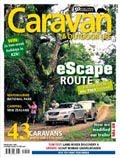Next Journalism [Search results for LIFE]
Call for Submissions: Third Culture Generation Anthology
2010-2011 Abd el-Kader Student Essay Contest (Iowa)
Call for Stories - Love, InshAllah Anthology: The Secret Love Lives of American Muslim Women
Call for Submissions: Contemporary African Women's Poetry
Currently Accepting African-American Fiction Submissions: Life Changing Books
Storymoja is Looking for Stories/ Articles to Publish (East Africa)
Call for Muslim and Arab Women Writers: Peace X Peace - Raising Women's Voices
Winners of International Prize for Arabic Fiction Announced
Call for Submissions: Saraba Literary Magazine Issue 8 (Nigeria/ Africa-wide)
Call for Submissions - Voices of the Dream
Call for Submissions: The Writings of Wole Soyinka 25 Years after the Nobel (AfroEuropa Journal)
Call for Stories/ Essays: Progressive Muslim Anthology
Earn Money by Blogging for Ghanaweb.com
Wanted: Editor for Caravan & Outdoor Life magazine

Shortlist Announced for the International Prize for Arabic Fiction 2011
Apply for M Literary Residency 2012 - 2013 in India/ China

Call for Submissions: Festschrift in Honour of Emeritus Prof. J. H. Kwabena Nketia (Ghana)
Call for Papers: National Black Writers Conference
The Cairo International Book Fair Opens January 29th

Call for Essays - Deciding Moment: The State of AIDS in Black America 2011 (Black AIDS Institute)
